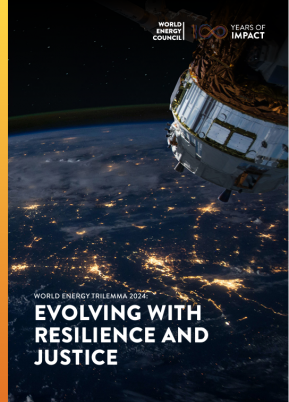The Bulgaria World Energy Council Committee is an independent, non-governmental and non-profit organisation formed of individuals and legal entities. It was founded in 2002, according to WEC’s practice of representing the member states through their national organisations. The activities of the Bulgarian National World Energy Council Committee include research studies and discussions on energy issues, analysis of topical energy problems and proposal of solutions to overcome them, development of strategic recommendations, organising conferences, seminars and meetings for a wide exchange of views, publications, participation in research and working groups of the World Energy Council, and cooperation with other organisations.
Valentin Nikolov has been Chair of the Executive Board of Bulgarian WEC Committee since 2016.
Valentin Nikolov was also the Chairman of the Bulgarian Parliamentary Energy Committee in the 44th National Assembly (2017-2021). Mr. Nikolov held several management positions in the energy sector, including Deputy Minister of Economics and Energy. From 2012 to 2013 he was CEO of the Kozloduy NPP. Throughout the years Mr. Nikolov also held several positions at the Bulgarian Energy Holding (BEH), such as Chair of the Executive Board and CEO. As a three-time Member of the Bulgarian Parliament, Valentin Nikolov had many legislative proposals for the development of Bulgarian energy sector.
Professionally trained as an economist and engineer, Mr. Nikolov has been participating in national and international conferences about circular economy and nuclear energy.
Borislav Boev has a Ph.D. in energy economics. He defended his thesis in the field of economics of nuclear energy. He’s an author of numerous scientific publications dedicated to energy topics. Mr. Boev is also honorary lector at the D.A. Tsenov Academy of Economics – Svishtov, Bulgaria. He currently works as an energy expert in the nuclear industry.
Energy in Bulgaria

In recent decades, Bulgaria has emerged as a prominent energy leader in the Balkan region. Historically, the Bulgarian energy sector has relied heavily on conventional sources such as coal, nuclear energy, and hydroelectric power plants. However, in recent years, there has been a notable shift towards integrating renewable energy sources into the electricity mix. While this transition brings undeniable benefits, it also presents several challenges for balancing the electricity system.
Key issues facing the energy sector and policymakers are influenced by global economic and energy uncertainty, geopolitical tensions, specific aspects of the European Community's energy policy, and local political and economic realities. These factors collectively shape the landscape in which Bulgaria's energy policies are formulated and implemented.
The five Critical Uncertainties for Bulgaria are as follows:
- Prices of commodities and raw materials
- International cooperation
- Workforce
- Accessibility of energy
- Acceptance of energy transition policies
In the years following 2021, a global energy crisis has unfolded, driven by disrupted supply chains and geopolitical conflicts. This upheaval has profoundly impacted not only the prices of critical energy commodities and raw materials but also the logistical routes for their distribution.
Another important aspect of Bulgaria's energy sector evolution pertains to international cooperation across political, commercial, and technological realms. A significant challenge highlighted by energy leaders and policymakers in Bulgaria revolves around workforce development. Given the ongoing energy transition and the country's ambitious plans for major energy projects, there is a pressing need for an expanded pool of specialists with interdisciplinary expertise in energy-related fields.
Two additional critical factors contributing to uncertainty are energy accessibility and acceptance. In times of economic and energy instability, both households and businesses express growing concerns about the reliability of energy supply. For instance, the Bulgarian industry, beyond seeking competitive energy prices, places paramount importance on continuous and readily available energy supplies to maintain competitiveness in both national and global markets.
The five areas of Priority Action for Bulgaria are related to:
- Cost of capital
- The development of electricity infrastructure
- Supply chains
- Fossil industry subsidies.
- Energy storage systems
In the realm of energy transformation, Bulgarian energy leaders and policymakers have pinpointed the cost of capital as a critical factor requiring immediate attention. This is because the energy transition demands substantial financial resources, not only for the construction of new electricity production facilities like nuclear builds but also for bolstering electricity infrastructure, enhancing transmission capacities, and investing in skilled personnel.
Supply chains represent another vital area demanding focused efforts, particularly in light of disruptions to traditional logistics routes that have been entrenched for decades. As highlighted earlier in this report, Bulgaria heavily relies on coal energy to maintain its power balance. Consequently, policies aimed at the rapid decommissioning of coal power plants have understandably sparked concerns among Bulgarian energy leaders and policymakers.
To address these concerns, policymakers and energy leaders advocate for the provision of a transition period for the fossil fuel industry in the country. This transition can be supported through various means, including direct subsidization and the implementation of administrative measures.
Additionally, a crucial priority in Bulgaria is the advancement of energy storage systems, particularly crucial with the increasing penetration of intermittent energy sources. The country's energy storage agenda encompasses the development of pumped-storage hydropower plants and other types of energy storage systems to ensure grid stability and reliability amidst the evolving energy landscape.
Acknowledgements
Bulgaria Member Committee
Downloads

Bulgaria World Energy Trilemma Country Profile 2024
Download PDF
World Energy Issues Monitor 2024 Bulgaria Country Commentary
Download PDF
World Energy Issues Monitor 2024 Full Report
Download PDF










